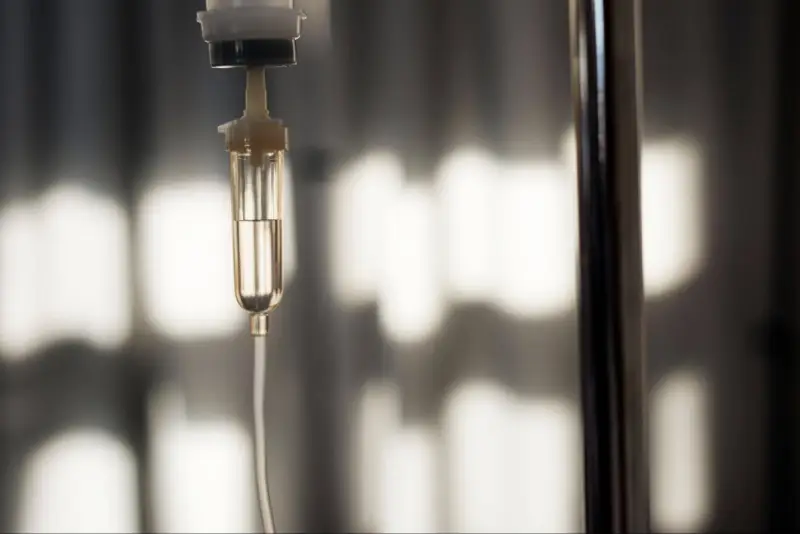Miami ketamine treatment is revolutionizing the approach to depression care, offering a beacon of hope for those who have not found relief through traditional procedures. This innovative treatment is quickly gaining traction due to its ability to provide rapid symptom relief and its unique action on the brain. As research continues to unfold, Miami’s medical community is embracing ketamine’s potential to transform mental health therapy.
In this article, we’ll explore eight compelling ways that ketamine treatment in Miami is reshaping the landscape of depression care, providing new options and renewed hope to countless individuals.
Does Miami Ketamine Treatment Really Work on Depression?
Yes, Miami ketamine treatment has shown effectiveness in treating depression, particularly in cases where traditional antidepressants do not work. Ketamine acts rapidly, often improving symptoms within hours or days, compared to weeks for typical antidepressants. It targets the brain’s NMDA receptors, promoting the growth of neural connections that can quickly alleviate depressive symptoms.
Research indicates that ketamine can lead to significant improvement in mood and is particularly beneficial for treatment-resistant depression. However, it’s essential to consider it under medical supervision due to probable side effects and the need for proper dosage and administration.
Different Ways Miami Ketamine Treatment Is Transforming Depression Care
There are significant transformations in the treatment of depression, particularly with the introduction of Miami Ketamine. This innovative approach is reshaping how depression is managed, offering new hope to patients.
1. Rapid Symptom Relief:
Ketamine therapy stands out for its ability to provide rapid relief from depression symptoms, typically within hours of administration. Traditional antidepressants can bring weeks to show effects, making ketamine a crucial option for individuals with severe or treatment-resistant depression. This rapid response is especially vital for those who suffer from debilitating depressive episodes, as quick symptom alleviation can significantly reduce the risk of self-harm and improve overall life quality almost immediately.
2. Alternative to Traditional Antidepressants:
Ketamine acts on NMDA receptors in the brain, offering a different mechanism of action compared to traditional serotonin-influencing antidepressants. This makes it an effective treatment alternative for patients who have not benefited from conventional medications. By targeting these receptors, ketamine can disrupt harmful neural patterns associated with depression, potentially offering relief where other medications have failed.
3. Enhancement of Neuroplasticity:
One of the most promising aspects of ketamine treatment is its ability to enhance neuroplasticity, the brain’s capability to form new neural connections. This effect can help to reverse the neural degradation often seen in long-term depression. Improved neuroplasticity not only aids in the recovery of normal brain function but may also contribute to better cognitive outcomes and emotional resilience, providing patients with a stronger foundation for long-term mental health.
4. Reduction in Suicidal Thoughts:
Among the most immediate benefits of ketamine therapy is its capacity to significantly decrease suicidal thoughts in patients. This rapid reduction is particularly important for individuals in acute crisis, offering a lifeline in critical moments. The ability of ketamine to provide such swift changes in mental state can be a game-changer in emergency psychiatric care, where time can often mean the difference between life and death.
5. Comprehensive Treatment Plans:
Clinics in Miami often use ketamine as part of a broader, more extensive treatment plan that includes psychotherapy and other supportive therapies. This integrative practice ensures that all aspects of a patient’s condition are addressed, which enhances the overall effectiveness of the treatment. Combining ketamine with ongoing psychotherapy can help consolidate gains in mental health and foster long-term coping strategies.
6. Low-Dose Options:
The therapeutic use of ketamine for depression involves low doses, significantly lower than those used for anesthesia. This dosage strategy helps minimize potential side effects while maximizing therapeutic benefits, allowing for a more controlled and safer treatment experience. The dosing can be customized based on individual responses, providing a tailored treatment plan that optimizes outcomes for each patient.
7. Improved Patient Engagement:
Patients treated with ketamine often report a rapid improvement in mood and cognitive function, which can lead to greater engagement with their treatment and everyday life. This renewed motivation can be crucial for patients who have struggled with depression for a long time, as it can lead to increased participation in personal and professional relationships and activities, further supporting the recovery process.
8. Ongoing Research and Innovation:
Miami is a hub for ongoing research into the uses and mechanisms of ketamine in treating depression. This commitment to exploring and understanding the full potential of ketamine ensures that treatment methods continue to evolve, incorporating the latest scientific findings and innovative practices. This research-driven approach helps maintain cutting-edge treatment protocols that offer the best outcomes for patients grappling with the complexities of depression.
Frequently Asked Questions

What are the eligibility criteria for ketamine therapy?
To be eligible for ketamine therapy, patients typically must have a diagnosis of a condition that has shown to respond to this treatment, such as severe depression, PTSD, or certain chronic pain syndromes. Additionally, patients must undergo a complete medical evaluation to ensure there are no health conditions that could pose risks during therapy.
How often do I need to attend Miami ketamine therapy sessions?
The frequency of Miami ketamine therapy sessions varies depending on the individual’s response to the treatment and the specific condition being treated. Initially, most treatment protocols suggest a series of sessions over a few weeks, pursued by maintenance sessions that might be spaced further apart based on the patient’s ongoing needs.
Are there any lifestyle changes I should make while undergoing ketamine therapy?
While undergoing ketamine therapy, it might be recommended to avoid alcohol and certain medications that could interact with ketamine. Engaging in regular physical activity, sustaining a healthy diet, and practicing stress-reduction methods such as mindfulness or yoga can also support your overall well-being and enhance the effectiveness of the therapy.
How do I know if ketamine therapy is working for me?
You can assess the effectiveness of ketamine therapy through regular discussions with your healthcare provider about your symptoms and any transformations in your condition. Improvement can be gauged by reductions in symptom severity and enhancements in overall quality of life. It’s important to give feedback during follow-up appointments to fine-tune your treatment plan.
Conclusion
It is undeniable that Miami ketamine treatment is reshaping depression care by providing rapid symptom relief, enhancing neuroplasticity, and reducing suicidal thoughts. As an alternative to traditional treatments, it offers new hope to those suffering from severe and treatment-resistant depression. Miami continues to be at the forefront of research and innovation, ensuring that ketamine therapy remains a cutting-edge option.
If you or someone you know is struggling with depression, consider exploring ketamine therapy at Sunshine Infusion. Call us today to learn more and arrange a consultation. Discover a new path to mental wellness with our expert care.




